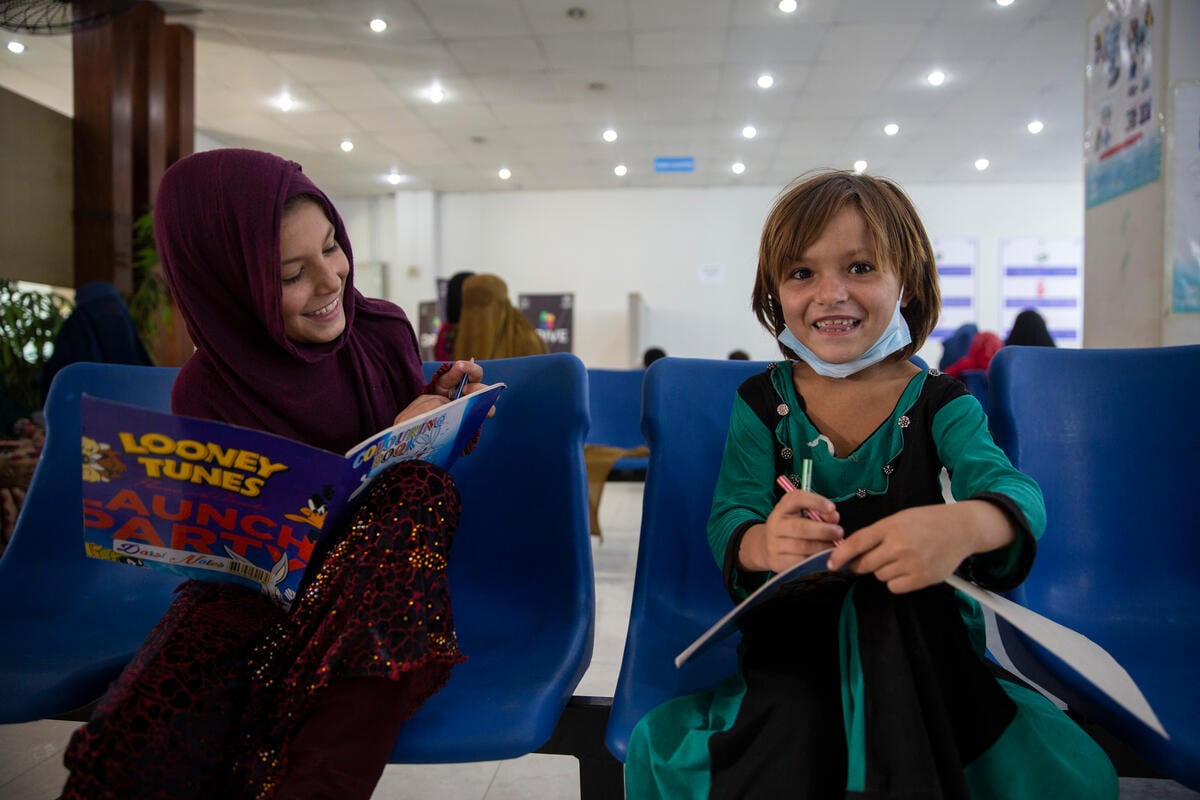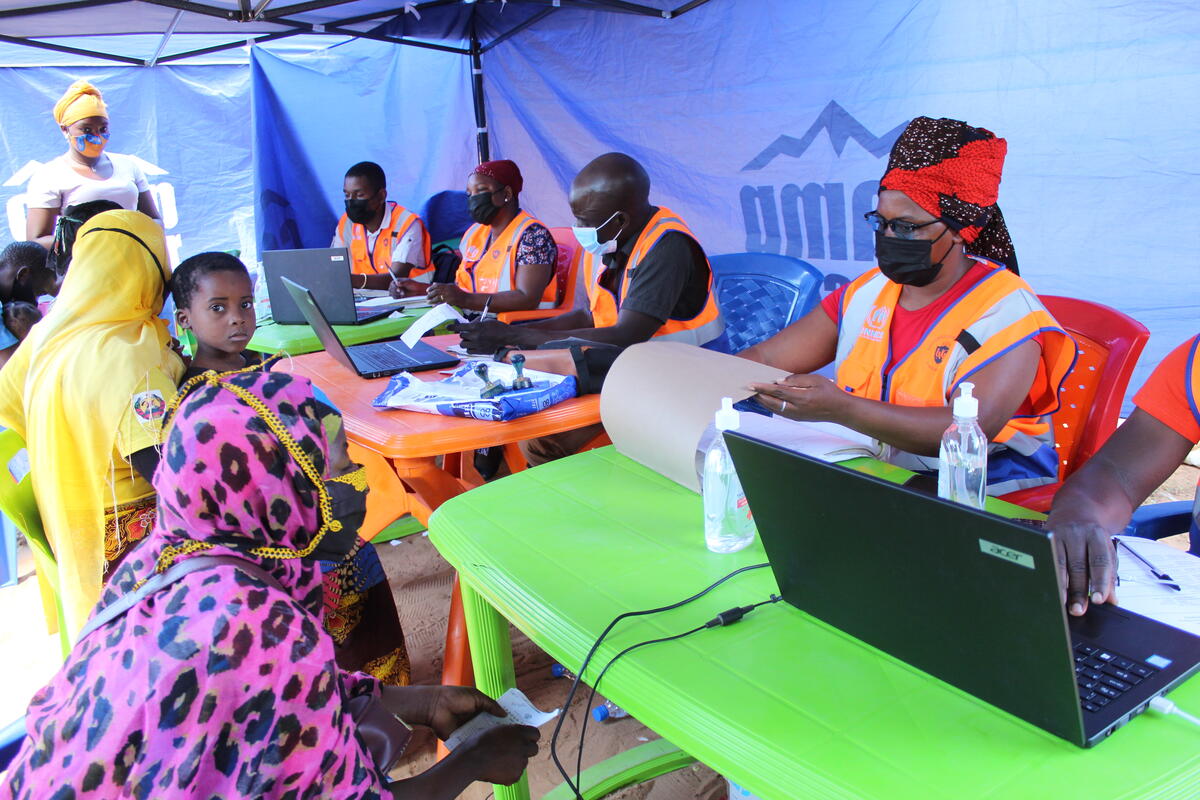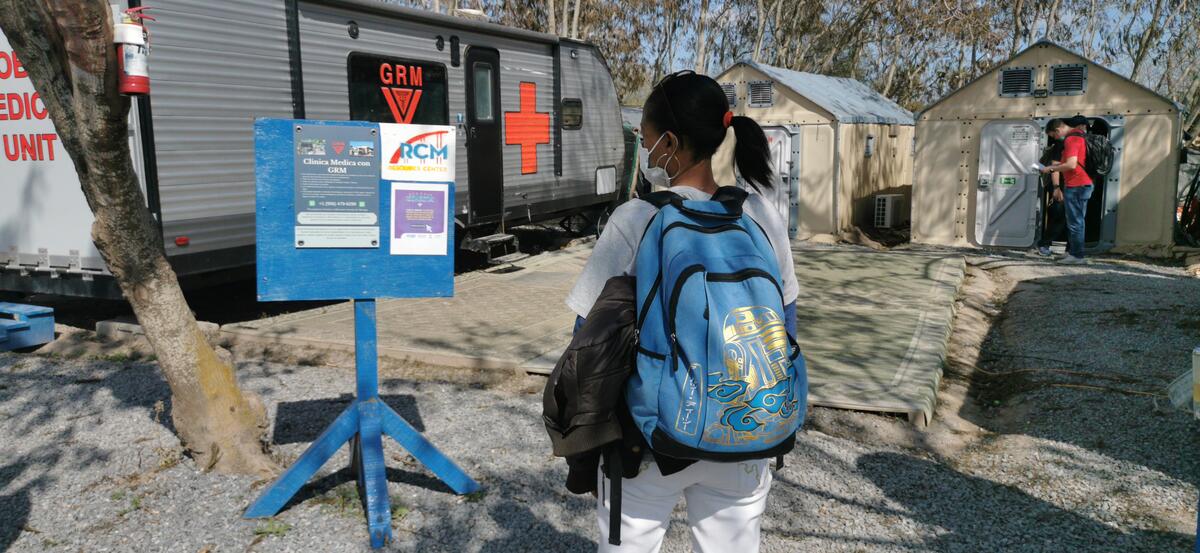ID cards bring life-saving benefits for South Sudanese in Sudan
ID cards bring life-saving benefits for South Sudanese in Sudan

KHARTOUM, Sudan, March 30 (UNHCR) - Teresa Majouk*, a 35-year-old South Sudanese refugee, did not appreciate the importance of the ID card she had received from the Sudanese authorities until she went into a difficult labour last month.
It was midnight when Gai Deng first heard the cries of his wife in Mayo, one of around 30 informal settlements across Khartoum State. It has been home for Gai and his family since they fled violence in South Sudan in February 2014.
They had not yet used the identity cards that the government of Sudan, with UNHCR support, began in February to distribute free of charge to an estimated half a million South Sudanese living in Sudan.
An elderly midwife, with wrinkled but firm hands, soon arrived at Teresa and Gia's home, where she discovered the baby was abnormally positioned. Teresa would require a caesarean operation.
"You must get her to a hospital now, where she will be better assisted, or she and the baby will die," urged the midwife.
Horrified, Gai rushed his wife to the nearby Academic Teaching Hospital. There, he was told the operation would cost 1,500 Sudanese pounds, and he would have to pay in advance for the operation to take place within 48 hours.
A ceramic worker with little money, Gai offered to pawn his wedding ring and watch, but the hospital refused. He desperately returned to Mayo hoping to borrow money from his community, only to meet the midwife, who told him to use Teresa's ID card.
"With the identity cards, South Sudanese refugees can have access to all basic services, including free-of-charge healthcare in public hospitals," she told him.
Gai rushed back to the hospital with his wife's ID card. From that moment, all her medical bills were cancelled.
Teresa is among nearly 500,000 South Sudanese refugees in Sudan who will be able to access critical, life-saving services thanks to these new ID cards.
"Provision of identity cards is one of the most important developments in the life of South Sudanese refugees in Sudan because it gives them a package of rights, including indefinite stay in the country," says Mohammed Adar, Representative of UNHCR in Sudan.
"Given the number of those who come to register and collect the identity cards, awareness of South Sudanese people of the benefits these cards provide has increased progressively."
In December 2014, UNHCR signed a landmark agreement with the Sudanese authorities to provide financial and technical support for the registration of South Sudanese all over Sudan over the next 18 months.
Since war erupted in South Sudan in December 2013, more than 120,000 South Sudanese people have sought refuge to Sudan, joining 350,000 who remained in the country after the secession of South Sudan in 2011. All are eligible for the ID cards.
So far, registration authorities have produced more than 100,000 ID cards for South Sudanese refugees around Khartoum, out of 115,000 people who are registered in that area.
"I can't thank God enough that I was issued an identity card only one week before I went into a complicated labour," says Teresa, as she smiles at her newborn baby.
*All names have been changed to protect the refugees' identities.
By Mohamed Elnaiem and Bahia Egeh in Khartoum, Sudan









